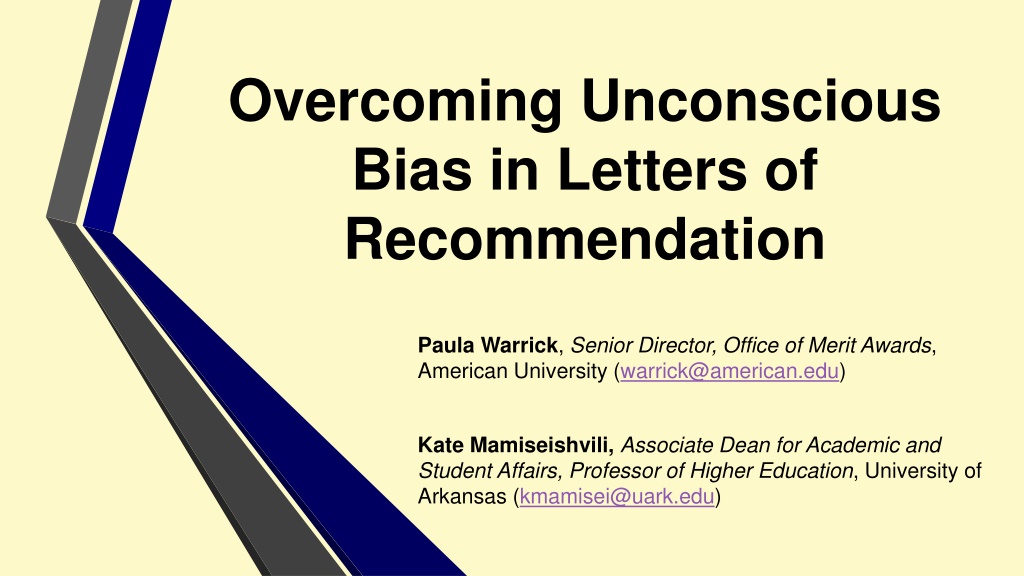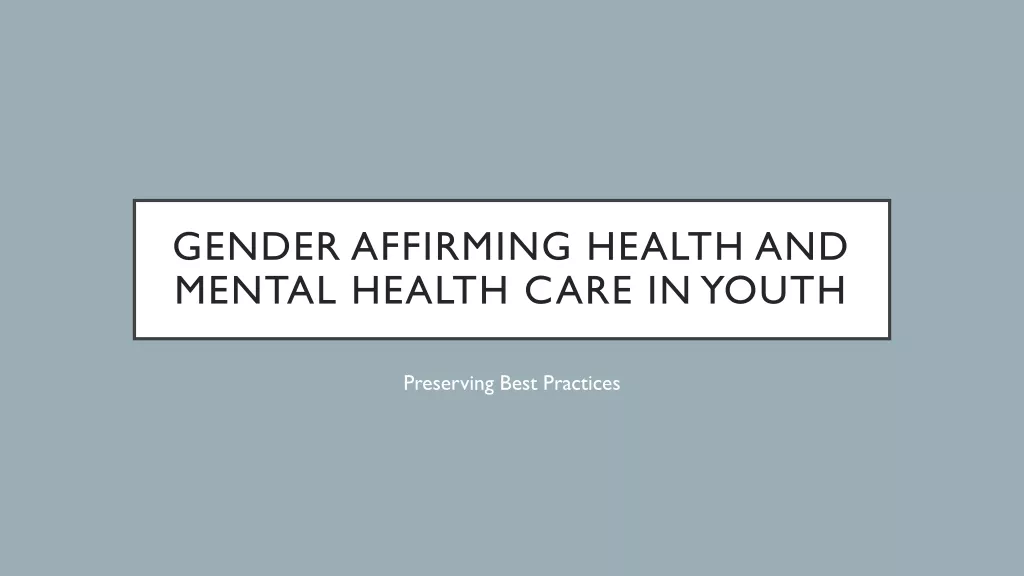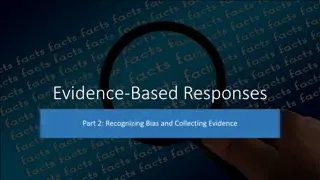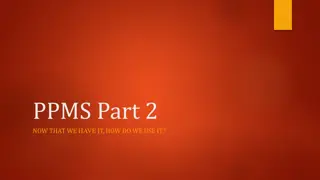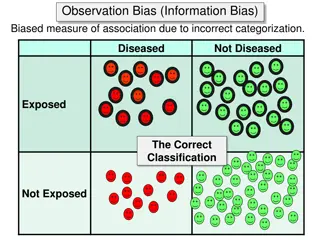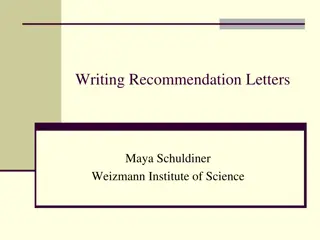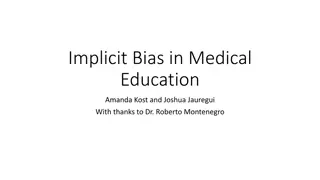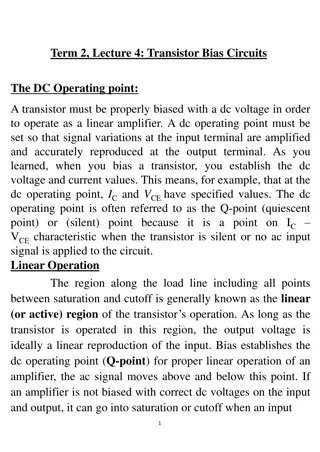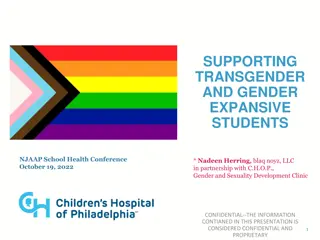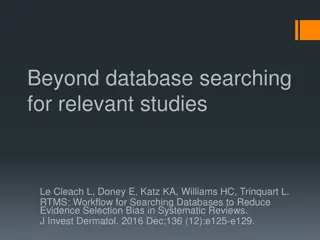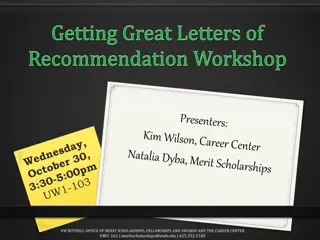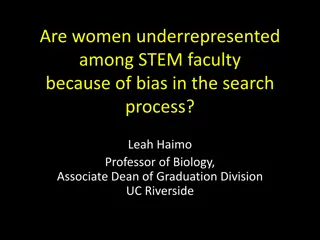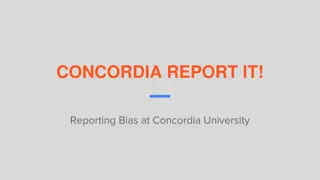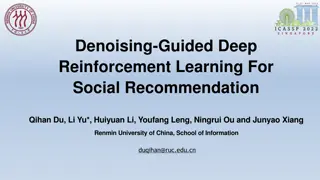Gender Bias in Academic Letters of Recommendation
Gender bias in academic letters of recommendation has been highlighted through various studies, showing disparities in the language used for male and female applicants. Female applicants often receive shorter letters with fewer standout words, more communal adjectives, and references to teaching rather than research, affecting their promotion and tenure prospects. These biases contribute to the persistent gender gaps in academia, impacting women's career progression and earnings.
Download Presentation

Please find below an Image/Link to download the presentation.
The content on the website is provided AS IS for your information and personal use only. It may not be sold, licensed, or shared on other websites without obtaining consent from the author. Download presentation by click this link. If you encounter any issues during the download, it is possible that the publisher has removed the file from their server.
E N D
Presentation Transcript
Overcoming Unconscious Bias in Letters of Recommendation Paula Warrick, Senior Director, Office of Merit Awards, American University (warrick@american.edu) Kate Mamiseishvili, Associate Dean for Academic and Student Affairs, Professor of Higher Education, University of Arkansas (kmamisei@uark.edu)
Gender Gaps Persist Women are less likely to be promoted and tenured Held 38.4% of tenured and 32.4% of full professor positions in 2015 (National Center for Education Statistics, 2016) Women earn less at all faculty levels (American Association of University Professors, 2017) At full professor level, 94.3% of what men earn 30% of college and university presidents were women in 2016 (American Council on Education, 2017). Gender inequality in evaluation is the leading culprit for women s lower promotion rates (Weisshaar, 2017, p. 554)
Trix & Psenka, 2003 300 letters of recommendation from successful candidates for medical faculty positions at a large medical school Letters for female applicants Were shorter (227 versus 253 words) Lacked basic features/letters of minimal assurance (15% versus 6%) Contained doubt raisers (24% versus 12%) Used grindstone adjectives (34% versus 23%) Included more references to teaching than research
Schmader, Whitehead, & Wysocki, 2007 866 recommendation letters for chemistry or biochemistry faculty positions at a large research university Recommenders used significantly more standout adjectives to describe male candidates as compared to female candidates Even though objective criteria showed no gender differences in qualifications Letters that contained more standout words also included more ability related terms and fewer grindstone words
Madera, Hebl, & Martin, 2009 624 recommendation letters from 194 applicants for 8 early-career faculty positions in Psychology at a Southern University Female applicants were more likely to be described with communal adjectives (e.g., helpful, nurturing, tactful) as opposed to male applicants who were described in agentic terms (e.g., assertive, confident, ambitious) Letters for female applicants were also more likely to use social- communal terms (e.g., mother, child, student, etc.) Communal characteristics were negatively related to hireability ratings
Dutt, Pfaff, Berstein, Dillard, & Block, 2016 1,224 recommendation letters from 54 countries for postdoctoral fellowships in the geosciences Female applicants were only half as likely to receive excellent letters versus good letters compared to male applicants
Mission Statement: Rangel Foreign Affairs Fellowship The program seeks individuals interested in helping to shape a freer, more secure and prosperous world through formulating, representing, and implementing U.S. foreign policy.
Selection Criteria: Truman Scholarship I hope to be a "change agent," in time, improving the ways that government agencies, nonprofit organizations, or educational institutions serve the public. There are conditions in our society or the environment which trouble me. I want to work in government, education, the nonprofit sector, or the public interest/advocacy sector to improve these conditions.
Scholar Profile: Udall Scholarship Ponuwon W. Brodeur, Passamaquoddy Tribe of Maine University of Maine-Machias Health Care Ponuwon is a Passamaquoddy tribal member from Maine, majoring in psychology. She has a strong desire to help those affected with mental illness and substance use disorders. She has significant understanding of the mental health and social services fields. Ponuwon regularly attends a local Integrated Behavioral Health Community Circle that is committed to improving the system of care delivery in her community. Ponuwon is a working mother of three and full-time student dedicated to her education
Source: The University of Arizona Commission on the Status of Women
References to traditionally female traits in letters for female candidates Jane has outstanding interpersonal skills and empathy and makes others around her feel comfortable. Jennifer s academic abilities are complemented by her character. She is a polite and civil young woman. She holds herself to high standards, but is also socially and politically aware. As head undergraduate teaching assistant, she demonstrated her leadership through her calm, empathetic demeanor mixed with the confidence she has in her own judgment. Jade is a charming, soft-spoken, and deeply respectful young woman, who has lived and served abroad as a U.S. Marine.
Doubt-raising language and stereotyping For a woman, Jane was able to form close ties with Japanese students during her study abroad experience in Japan. While Saudi Arabia can be a difficult country for a woman, she still was able to have a good experience. She is involved extensively with the campus chapter of Black Lives Matter, but she is nevertheless polite and respectful of authority. Maribel has a fiery presence, igniting interesting conversations and debates.
Source: National Center for Women and Information Technology
References Dutt, K., Pfaff, D. L., Bernstein, A. F., Dillard, J. S., Block, C. J. (2016). Gender differences in recommendation letters for postdoctoral fellowships in geoscience. Nature Geoscience, 9, 805-808. Madera, J. M., Hebl, M. R., Martin, R. C. (2009). Gender and letters of recommendation for academia: Agentic and communal differences. Journal of Applied Psychology, 94(6), 1591-1699. Schmader, T., Whitehead, J., Wysocki, V. H. (2007). A linguistic comparison of letters of recommendation for male and female Chemistry and Biochemistry job applicants. Sex Roles, 57(7-8), 509-514. Trix, F., & Psenka, C. 92003). Exploring the color of glass: Letters of recommendation for female and male medical faculty. Discourse & Society, 14(2), 191-220. The University of Arizona Commission on the Status of Women. (n.d.). Avoiding gender bias in reference writing. https://csw.arizona.edu/sites/default/files/avoiding_gender_bias_in_letter_of_reference_writing.pdf Weisshaar, K. (2017). Publish and perish? An assessment of gender gaps in promotion to tenure in academia. Social Forces, 96(2), 529-560.
